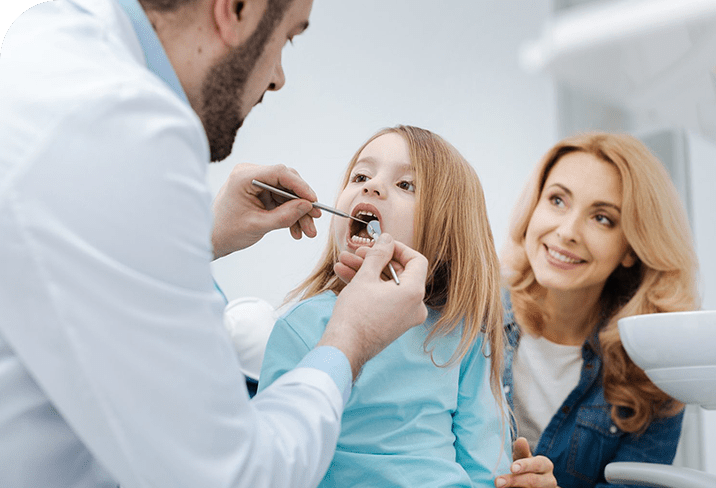Image Source: Google
As parents, we want the best for our children, and that includes their oral health. Dental care is an essential aspect of a child's overall well-being. Instilling good oral hygiene habits at a young age sets the foundation for a lifetime of healthy teeth and gums. Let's explore why dental care is so important for children.
Preventing Tooth Decay
Tooth decay is one of the most common childhood diseases, and it can lead to pain, infection, and difficulty in eating and speaking. Regular dental care, including brushing and flossing, helps prevent tooth decay by removing plaque, a sticky film of bacteria that forms on teeth. It is recommended to start cleaning your baby's gums even before the teeth erupt, using a soft cloth or brush designed for infants.
As soon as the first tooth appears, it is time to schedule your child's first dental visit. This typically occurs around the age of one, and it allows the dentist to check for any dental issues, guide oral hygiene practices, and discuss diet and fluoride needs.
Establishing Good Oral Hygiene Habits
Children learn by example, and that includes oral hygiene practices. As parents, we can guide our children in developing good habits and make oral care enjoyable. Encouraging them to brush their teeth twice a day, for two minutes each time, is crucial. Using a soft-bristled toothbrush and a child-friendly toothpaste with fluoride helps keep their teeth clean and protected.
Additionally, flossing should be introduced as soon as their teeth start to touch. Although it may take some time for children to perform this task independently, parents can assist them and gradually teach them the proper technique.
Preventing Dental Issues
Regular dental check-ups allow dentists to detect any dental issues early on, avoiding potential complications. They can identify problems like malocclusion (misaligned teeth), tooth decay, gum disease, and any developmental issues. Early intervention is key to preventing more significant problems in the future.
Dentists may recommend preventive measures, such as sealants, to protect the teeth from decay. Sealants are thin, protective coatings applied to the chewing surfaces of molars, where cavities are most likely to develop. They act as a barrier, preventing food particles and bacteria from settling into the grooves of the teeth.
Promoting Confidence and Self-Esteem
A healthy smile contributes to a child's confidence and self-esteem. Children with healthy teeth are more likely to feel comfortable smiling, talking, and interacting with others. On the other hand, dental problems like cavities or crooked teeth can cause embarrassment and hinder social interactions.
Regular dental care ensures that your child's teeth are in good condition, preventing any potential issues that could impact their confidence. It also allows the dentist to address any concerns about the appearance of their teeth, such as discoloration or misalignment.
Maintaining Overall Health
Oral health is closely linked to overall health. Poor oral hygiene can lead to various health problems, including gum disease, heart disease, and respiratory infections. Children with untreated dental issues may experience difficulties eating, sleeping, and focusing in school.
Paying attention to your child's dental care not only protects their teeth and gums but also contributes to their overall well-being. Encourage a balanced diet, limit sugary snacks and beverages, and promote habits that promote good oral health.
In conclusion, dental care plays a vital role in ensuring the well-being of children. It prevents tooth decay, establishes good oral hygiene habits, prevents dental issues, boosts confidence, and contributes to overall health. By prioritizing dental care, parents are setting their children up for a lifetime of healthy smiles.

